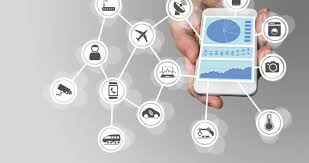Situational Analysis of ICT Applications in Colleges of Education libraries in Nigeria: Issues and Challenges

Abstract:
This research work dealt on “Situational
Analysis of ICT Applications in Colleges of Education libraries in Nigeria”. The
purpose of the study is to find out the challenges of applying ICT in library
functions and to examine the benefits of applying ICT in library functions. A
survey research design was used for this study. The researcher made use of
purposive sampling technique to select fifty respondents from (300) three
hundred library staff of colleges of education in south eastern Nigeria. Purposive
sampling technique was adopted because the respondents are few and have the
same features, for instance, the respondents work in college library. The
instrument for data collection is the questionnaire which has thirty (30) items
designed to obtain information on ICT application in colleges of education
libraries. The mean statistics was used to analyze the data collected. The
findings of the study showed that lack of ICT personnel, lack of
standardization, lack of library software to mention but a few are some of the
challenges of applying ICT in library functions. The paper also listed some of
the benefits of applying ICT to library functions such as low cost of processing materials, speed
and accuracy of information, better service at lower cost, influences
accessibility of information acquisition of knowledge and skills etc. The paper
concluded that Government should employ ICT personnel and experts in our
libraries to handle the integration and at the same time provide in-service
training and re-training for library staffs on a regular basis as measures to
ICT application in Colleges of education libraries.
Keywords: Information
and communication Technology (ICT), Libraries, ICT based library services.
References:
[1]. Akor, P. U.,
Joshua, O. A., & Idika-Mba, E. W. (2016). Imperatives of Modern Technology
on Service Delivery in University Libraries in Nigeria. International Conference on Information and Communication Technology
and Its Applications (ICTA) (pp. 168-172). Minna, Nigeria: Federal
University of Technology.
[2].
Ameh,
J., & Aluko, O. (2019). 2019 budget: Education gets N.620.5bn, against
UNESCO's advice. Retrieved from PUNCH: punchng.com.
[3].
Madu,
E.C. (2004). Automation and Service Provision in Libraries and Information
center in developing countries, in Madu E.C (ed) technology for Information
management and services. Ibadan: Eni coleman publication.
[4].
Nwachukwu,
V.N. (2005). Information Technologies application to libraries in developing
countries: The need for caution. A journal of Global review of Library and
information Science. Vol 1(1) PP :94-100.
[5].
Naqvi,
R H (1982) “Computer Based Reference services in Pakistan” Pakistan Library
Bulletin. 13 (1). Pp. 17-22.
[6].
Oghenetega,
L. U., Umeji, E. C., &Obue, C. N. (2014). Challenges Associated with the
Use of ICT Facilites in Public Library of Nigeria. Developing Country Studies,
vol 4 (22) 1-5.
[7].
Okon,
M. E., & Ogbodo, C. I. (2014). Information and Communication Technology
(ICT) AS A Necessity for Libraries and Librarians of Nigeria Universities in
the 21st Century. Review of Information Engineering and Applications, 39-54.
[8].
Okore,
M.I. (2005). The challenges of Information Communication Technologies for
Nigrian Academic libraries. A journal of Global review of Library and
information Science. 1(1)84-93.
[9].
The
United Nations Universal Declaration of Human Rights. (2014). The united
nations universal declaration of human rights (Article19). Retrieved from
http://www.UN.org/en/documents.udhr.
[10].
Vijayakumar,
D. A., &Vijayan, S. S. (2011). Application of Information Technology in
Libraries: An Overview. International
Journal of Digital Library Services, 144-152.

